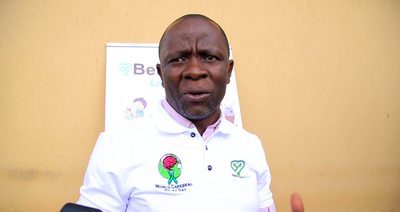
Economy
PSST Ramathan Ggoobi Calls for Accountability and Efficient Public Investment Delivery at PIMSConference2025
Uganda is intensifying efforts to ensure that public investments not only meet design standards but also deliver tangible results for citizens. Speaking at Makerere University’s Public Investment Management System (PIMS) Conference 2025, Permanent Secretary to the Treasury, Ramathan Ggoobi, stressed the importance of execution, efficiency, and institutional accountability in public project management.
“Designing a good project is no longer enough; we must ensure that every investment is executed efficiently, completed on time, and delivers real results for our people,” Ggoobi stated. He emphasised that the successful implementation of public investments requires collaboration across institutions and a strong delivery capacity. “Fiscal space is constrained, and returns on investment must be maximised,” he said, underlining the necessity for prioritisation and effective resource utilisation.
Ggoobi pointed out that public trust is earned when projects benefit citizens, noting that delays, cost overruns, and fragmented coordination undermine confidence in government. “Public trust is earned when projects benefit citizens; delays, cost overruns, and fragmented coordination must give way to a culture of accountability and performance,” he reiterated, emphasising the need for a results-oriented approach across all ministries, departments, and agencies (MDAs).
The National Public Investment Management (PIM) Policy, recently launched, provides a robust and unified framework to guide the entire investment cycle—from planning and appraisal to implementation and post-evaluation. Ggoobi stressed that this framework is crucial for enhancing efficiency, transparency, and value for money in public investments. “It is now incumbent upon all MDAs to institutionalise the Policy’s provisions, align investments with sector priorities, and reinforce compliance through stronger internal systems,” he said.
Ggoobi further highlighted that the Public Investment Management Centre of Excellence at Makerere University plays a critical role in improving project outcomes. The centre trains public officials, supports policy formulation, and provides research and advisory services, all aimed at strengthening project delivery and maximising socio-economic impact.
Addressing ongoing challenges, Ggoobi noted that implementation and project management deficiencies have led to persistent delays, cost overruns, and suboptimal outcomes. “Every public investment is a promise to Ugandans; our responsibility is to deliver on that promise through teamwork, technical capacity, and relentless commitment,” he said, urging officials to adopt a culture of accountability, performance-driven leadership, and delivery at all levels of government.
The conference also emphasised the strategic prioritisation of investments in four sectors: Agro-Industrialisation, Tourism Development, Mineral-Based Industrialisation, and Science, Technology & Innovation. Ggoobi explained that careful alignment of investments with these sectors is necessary to maximise socio-economic returns and drive sustainable development.
“Public investments must be viewed not merely as financial undertakings but as instruments to transform lives and create opportunities for wealth,” Ggoobi noted. He emphasised that technical capacity, strong institutional systems, and collaboration across MDAs are critical to achieving these goals.
Renowned economist Dr. Donald Kaberuka contributed to the discussions, underscoring that public financial management extends beyond efficiency to building social capital through responsible expenditure. He advised that policies must meet three criteria to be effective: technical soundness, political feasibility, and implementability. “If a policy doesn’t meet any of these, you must circle back and ensure that it aligns,” he said.
The conference provided a platform to reinforce the message that effective project delivery is central to Uganda’s economic growth, with a strong emphasis on accountability, transparency, and the efficient use of public resources. Stakeholders agreed that improving implementation, institutional coordination, and adherence to the PIM Policy are essential for converting public investments into measurable benefits for Ugandans.
The PIMS Conference 2025 concluded with a call to action for all public officials to embrace performance-driven leadership, institutional collaboration, and a culture of delivery, ensuring that every public investment fulfils its promise and contributes to the nation’s socioeconomic development. Ggoobi’s message made it clear: Uganda’s future growth depends on translating well-designed projects into real, tangible outcomes for citizens.














Roswell Mbabazi
Leave a Comment
Your email address will not be published.